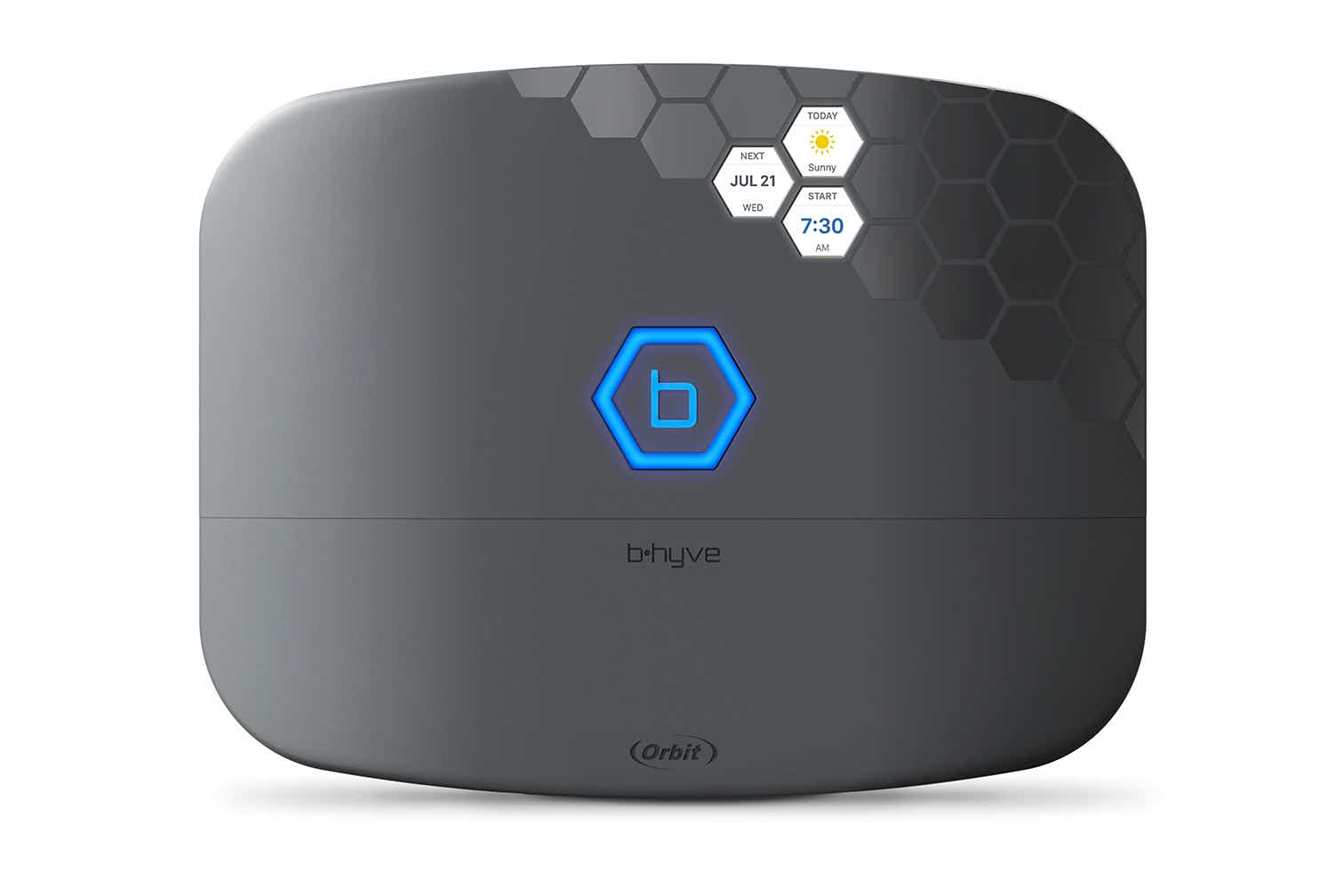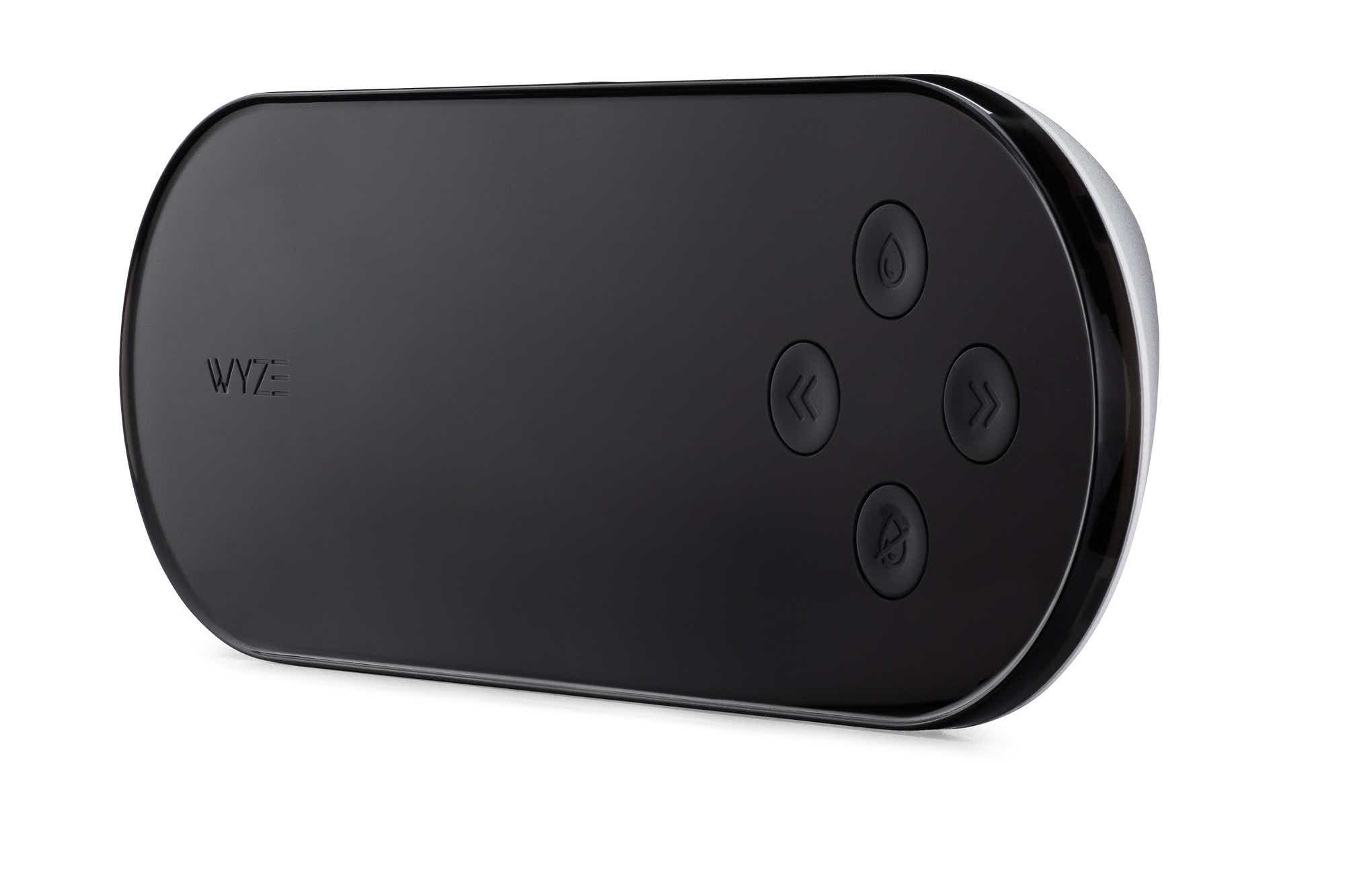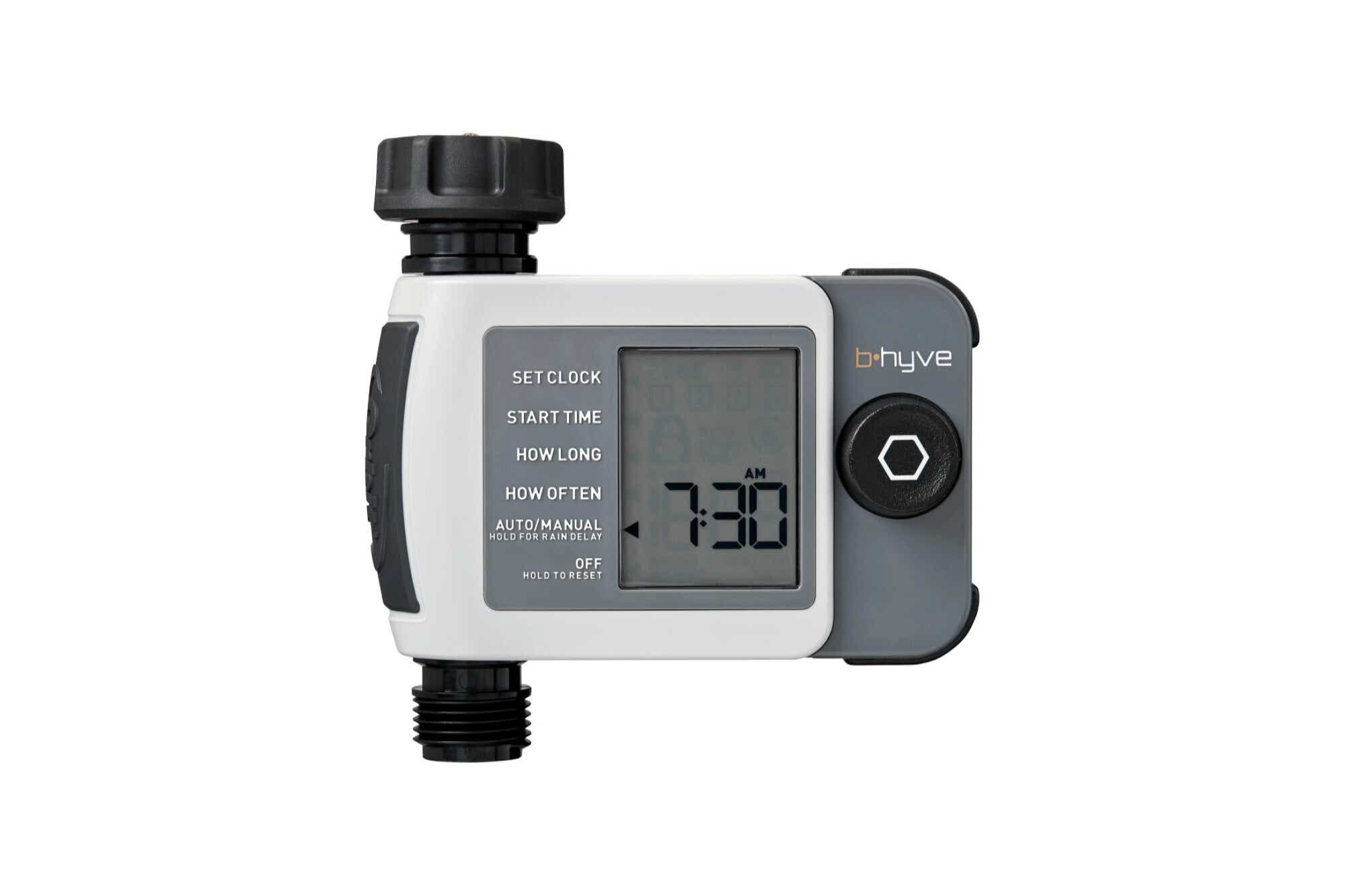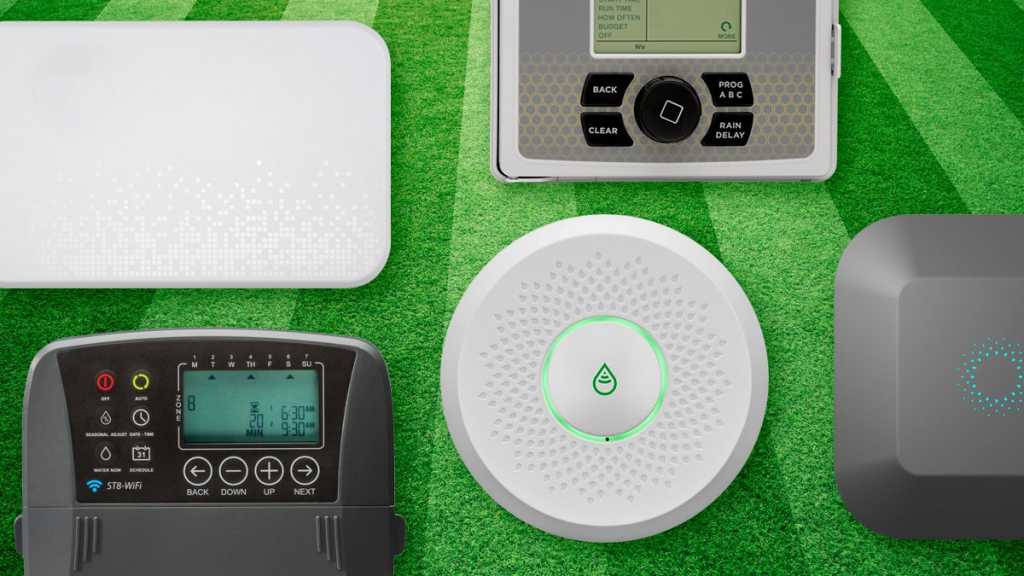Watering our lawns and gardens is a thankless chore, and it can be particularly wasteful when done with a hose in one hand and a beer in the other. Irrigation systems have made home watering simpler and more efficient, and while the bulk of any sprinkler system revolves around plastic pipes (hoses and drippers with a drip irrigation system) and a set of motorized valves attached to the water supply, the brains of the operation has always been in the controller.
For decades, sprinkler controllers have hardly been elegant devices. They typically consist of a rotary dial, a handful of switches, and perhaps a crude monochrome LCD. This is rapidly changing, as smart sprinkler controllers enter the market. These have come from two angles: Startups looking to disrupt the market with brand-new devices, and old-guard irrigation companies that have upgraded their gear with smart innards. Both approaches to date have shown some merit. Here are our takes on the best gear on the market today.
Updated September 20, 2022 with a link to our news story covering the launch of the innovative Irrigreen smart sprinkler system.
The best smart sprinkler controllers
Rachio 3 Smart Sprinkler Controller — Best smart sprinkler controller
Pros
- Better Water Intelligence features improve conservation
- Revamped wire connectors make setup even faster
- Onboard controls offer easy access to manual runs
Cons
- High-pitched squeal emanates from device
- Old Rachio units don’t get access to the same software treatment
- Expensive
The world’s best smart sprinkler controller gets even better, with new features, better wireless connectivity, and smarter water management. (Note: There is also an 8-zone model that sells for less).
Read our full
Rachio 3 Smart Sprinkler Controller (16 zone)review
Orbit B-hyve XR — Best smart sprinkler controller, runner-up

Pros
- Lots of scheduling options, fairly easy to understand
- Onboard display is handy for at-a-glance status updates
- Dual-band Wi-Fi support
- Can be mounted outdoors without an accessory (though not fully waterproof)
Cons
- Wiring leads might require some finagling to successfully connect
- Quite bulky in size
- Onboard hardware controls are far from intuitive
Orbit might be a graybeard in the world of irrigation, but it’s giving Rachio a run for its money in the smart home market. Orbit’s second-generation B-hyve smart sprinkler controller has lots of bells and whistles, and it can even withstand being mounted outdoors without needing an accessory (although it’s not completely waterproof).
Read our full
Orbit B-hyve XR (8 zone)review
Wyze Sprinkler Controller — Best budget-priced smart sprinkler controller

Pros
- Cheap, a third the price of most other controllers on the market.
- Easy setup, especially if you just need the basics.
Cons
- Limited to 8 zones
- Weatherproof housing costs extra
Read our full
Wyze Sprinkler Controllerreview
Orbit B-hyve XD — Best hose-based smart sprinkler controller

Pros
- Very inexpensive
- Smart functionality greatly eases the headache of scheduling via hardware
- Reasonably easy to use
Cons
- We encountered headaches getting the Wi-Fi bridge to work properly
- Smart Watering features require the added-cost Wi-Fi bridge
Read our full
Orbit B-hyve XDreview
If you water your landscaping with a garden hose or a simple drip irrigation system, as opposed to an in-ground sprinkler system, Orbit’s second-generation B-hyve XD is vastly superior to conventional non-connected timers, and Orbit’s app can control several of them independently when you add the optional Bluetooth-to-Wi-Fi bridge, which we heartily recommend.
Do you have a sprinkler system already? While there are a few smart irrigation controllers that will work with garden hoses or other off-the-rack equipment, most are designed to work with true irrigation controllers that connect to their own water supply and which feature motorized valves and dedicated tubing to control the flow of water. Installing a real sprinkler system can be a big task that requires professional help—particularly if you have a large yard or garden—but upgrading to a smart controller from a “dumb” one isn’t difficult. Consult with a landscaping expert first if you are installing a sprinkler system from scratch, in order to plan out your zones in advance.
On-device controls: Probably the biggest single decision you need to make with a controller is whether you want a device that includes onboard controls, i.e., buttons and a readout directly on the controller that allow you to use it without an app. This can be handy if you have multiple people using the system or, especially, want to give a gardener access to the controller without having to set him or her up on the app. Systems without on-device controls generally lack any kind of display whatsoever except for a status light indicating whether it’s working, so remember you’ll need the app on your smartphone or tablet to do anything with it.
Indoor/outdoor mounting: Are you mounting the unit inside or outside? If outside, you’ll need a weatherproof enclosure for the system. Some vendors sell separate indoor and outdoor versions of their controllers. Others sell an outdoor enclosure as a separate add-on.
Number of zones: In irrigation parlance, a zone is an area controlled by a valve and its connected irrigation tubing. If you have four valves, you have four zones. Your controller needs to have enough capacity to support all the zones in your system. Eight zones is common, but units supporting as few as six zones and as many as 16 zones are currently on the market.
Scheduling flexibility: How often do you want to water? Every day? Every other day? On specific days of the week? Not every controller can handle complex schedules, so look closely at your options before buying. A few controllers can even import legal watering restrictions information for your zip code, to ensure you aren’t watering on prohibited days.
Notifications: It’s helpful to be notified when your watering system is running, but different products deal with the mechanics differently. Push notifications are common, but many only notify you when the watering has completed, not when it starts (which is arguably more useful). Other forms of notification (email, text) aren’t common, so consider a unit that supports IFTTT if you want to get fancy with notifications.
“Smart” scheduling: Once of the great promises of smart watering systems is that they can take into account your local weather and environment to optimize your water delivery. We’ve found that these don’t work all that well (they have a tendency to over-water), though options that skip watering when it rains can be a bonus feature. Otherwise, there’s not too much of a need to put weight on so-called “smart” scheduling features.
Smart-home hub support: Want to tie your sprinkler system into your smart-home hub? Sounds great, but the reality is that most smart sprinklers exist as islands today: Only a few connect to anything at all, though Amazon’s Alexa has a modicum of support. Expect this to change as these products mature.

